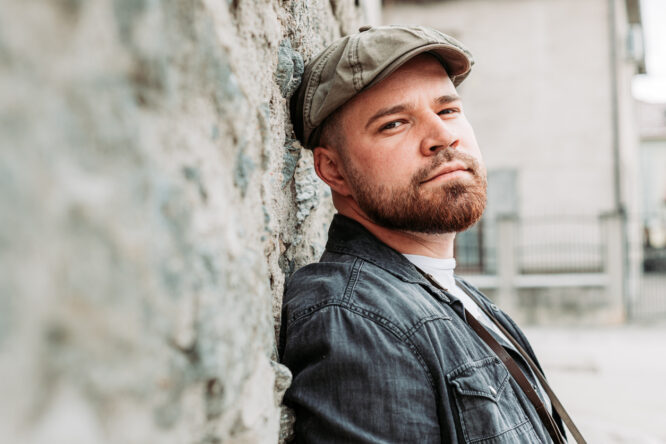It’s easy to be hard on yourself—we’re our own worst critics, after all.

You remember your slip-ups more than your efforts, dwell on what you haven’t done instead of what you quietly get right. However, being a good person isn’t about being perfect or constantly selfless—it’s about how you show up, even when no one’s watching. If you’ve ever wondered whether you’re actually doing okay as a human being, these subtle but powerful signs might say more than you realise.
1. You feel guilty when you hurt someone, even unintentionally.

You don’t brush off someone else’s feelings, even if the hurt wasn’t your intention. You take it seriously, replay what you said, and wonder how to make it right. That kind of emotional accountability matters more than always getting it right the first time.
People who genuinely care tend to question themselves more. If you feel uneasy after hurting someone, even accidentally, it’s a sign your heart’s in the right place and your conscience still has a strong pulse.
2. You celebrate other people’s wins.

Even when you’re struggling, you still feel genuinely happy for people when something goes right in their life. You’re not just pretending to be supportive—you mean it, even if their success reminds you of what you don’t have yet. Having the ability to hold space for both joy and envy without letting the envy take over? That’s maturity, and it’s proof you’ve got a generous spirit underneath whatever stress you’re carrying.
3. You treat people with respect regardless of their status.

You don’t just save your kindness for the people in positions of power. You’re polite to customer service staff. You say thank you to delivery drivers. You notice how other people are treated, and it matters to you. That understated respect for people—whether or not they can do anything for you—is one of the clearest signs of genuine decency. It means you see people as people, not tools or background noise.
4. You’re aware of your flaws (and trying to do better).

You know where you struggle. Maybe you’ve got a short fuse, or you freeze up in conflict. However, you don’t just accept that as a personality quirk—you’re working on it, even if the growth is slow and frustrating. Self-awareness paired with effort is rare. A lot of people live in denial or deflect. The fact that you’re showing up and doing the work, even messily, speaks volumes.
5. You don’t enjoy watching other people fail.

You might be tempted, especially when it’s someone who wronged you, but deep down, watching someone else struggle doesn’t sit right. You don’t root for someone’s downfall, even when they’re not your favourite person. That uncomfortable feeling you get when things go badly for other people? That’s your humanity talking. Holding onto that, even in a culture obsessed with rivalry, is a quiet kind of strength.
6. You apologise when it counts.

Saying sorry doesn’t feel like a power loss to you. You’d rather repair than win. You’re not afraid to admit when you’ve been unfair, rude, or careless, and you don’t need a script to say it. A sincere apology without defensiveness is a skill many people avoid forever. If you’re doing it naturally, you’re miles ahead emotionally, even if you don’t always realise it.
7. You try not to pass your pain onto other people.

You have bad days, but you try not to make them everyone else’s problem. You hold yourself back from snapping, ghosting, or offloading your stress in unfair ways. You might not always succeed, but you try. Making an effort to be responsible with your emotions—even when you’re barely holding it together—takes strength. It’s not about bottling it all up; it’s about not making other people bleed for your wounds.
8. You listen more than you speak (when it matters).

You might love a good chat, but when someone’s opening up, you quiet down. You’re not just waiting to respond—you’re actually paying attention. You ask questions. You care about what they’re saying, even if you can’t fix it. That kind of presence is rare. Most people want to be heard; fewer know how to hear other people without rushing to solve or compare. If you’re someone people trust to talk to, that says a lot about your character.
9. You don’t humiliate people in arguments.

Even when you’re hurt or angry, you try not to aim below the belt. You don’t go for people’s insecurities, you don’t weaponise their past, and you don’t turn conflict into a chance to dominate. Keeping your integrity when emotions run high isn’t easy. However, if you’re able to stay respectful, even when you’re fuming, that’s real inner restraint, and it shows a level of emotional maturity that many don’t develop.
10. You admit when you don’t know something.

You’re not pretending to have it all figured out. When you don’t know the answer, or when someone teaches you something new, you don’t get defensive. You absorb it. You’re open to learning. That humility often goes unnoticed, but it matters. Admitting uncertainty doesn’t make you weaker—it makes you more trustworthy. It means you value truth over pride.
11. You worry about being a good person.

Here’s the twist: people who are genuinely awful rarely sit around wondering if they’re decent. The fact that you even ask the question means your moral compass is switched on and doing its job. If you ever find yourself lying awake wondering if you handled something the right way, or if you hurt someone without meaning to, that’s your empathy working, even if it feels like self-doubt in the moment.
12. You respect people’s boundaries.

You don’t push, guilt-trip, or manipulate to get what you want. When someone says no, or makes it clear they’re uncomfortable, you back off. You might not always understand, but you still respect it. That restraint is a subtle form of kindness that often gets overlooked. If you create space for other people to feel safe and seen, even when it inconveniences you, you’re already ahead of the game.
13. You want to leave things better than you found them.

Maybe it’s people, places, conversations, or situations. But part of you always wants to bring something positive—whether it’s comfort, clarity, or a small moment of lightness. You care about your impact. You’re not trying to be the hero—you just want things to feel a bit better than before you arrived. That intention alone speaks volumes about the kind of person you are.
14. You’re patient with people who are struggling.

Whether it’s someone moving slowly in the queue or a friend spiralling through the same story again, you don’t jump to judgement. You recognise that everyone’s carrying something, even if it’s invisible. Your patience isn’t flashy. But it creates a ripple effect of safety around you. And in a world that’s constantly rushing, your calm presence is more valuable than you think.
15. You remember how people make you feel, and try to do better.

You haven’t forgotten what it feels like to be ignored, misunderstood, or made to feel small. Because of that, you try not to inflict that same energy on anyone else, even in small ways. That kind of awareness turns pain into empathy. It means you’ve taken your own hard moments and used them to be gentler with the world. That’s not weakness—that’s growth.
16. You want to be better—not for applause, but because it matters to you.

You’re not chasing moral gold stars. You’re not doing it for social media claps. You just want to know you’ve done right by people. That you’ve contributed something good, even in small ways. Your integrity and your steady inner compass? That’s what being a good person really looks like. You don’t need anyone to tell you that, but it’s okay if you needed the reminder.




